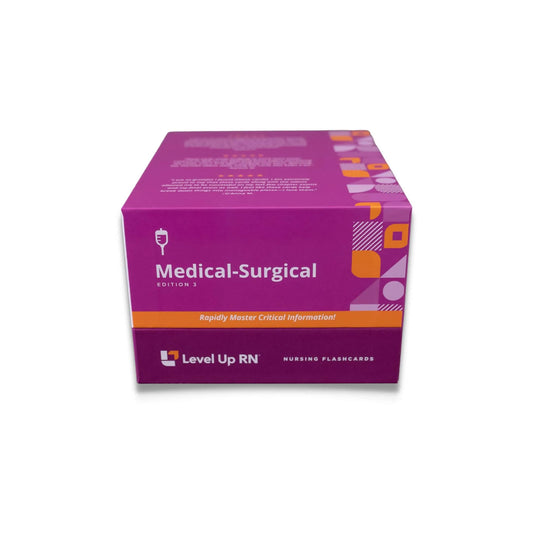This is the first video and article in our Medical-Surgical Nursing Endocrine Playlist. This playlist has been designed to help you with your nursing school class exams, your predictor exams, like ATI, HESI, or Kaplan. It is also designed to help you prepare for the NCLEX and to be a safe and effective nurse.
What to expect in our coverage of the endocrine system
In these videos, Cathy will be following along with my new Medical-Surgical Nursing flashcards. You don't need these flashcards to follow along and get value out of this video series, but they are very helpful. If you don't have flashcards yet, we definitely recommend that you make your own flashcards, because repetition is so key for nursing, particularly here with the endocrine system.
- Organs, glands & hormone overview
- Cortisol, T3/T4, GH, Estrogen, Progesterone, Testosterone, Oxytocin & Prolactin
- ADH, Aldosterone & RAAS
- Epinephrine, Norepinephrine, Calcitonin, PTH, Insulin & Glucagon
- Negative Feedback Mechanism vs. Positive Feedback Mechanism
- Thyroid Panel and Blood Glucose Labs
- Hypo- vs. Hyperpituitarism & Hypophysectomy
- Growth Hormone Deficiency and Excess
- Diabetes Insipidus and SIADH
- Adrenocortical Insufficiency & Addisonian Crisis
- Glucocorticoid Hormone Excess (Cushing's Syndrome)
- Pheochromocytoma & Hyperaldosteronism
- Hypothyroidism & Myxedema Coma
- Hyperthyroidism & Thyroid Storm (Thyrotoxicosis)
- Thyroidectomy: Nursing Care
- Hypoparathyroidism and Hyperparathyroidism
- Diabetes Mellitus
- Diabetes Complications - Hypoglycemia, DKA, HHS
What is the overall function of the endocrine system?
The overall function of the endocrine system is the release of hormones.
What are hormones?
Hormones are like chemical messengers. Hormones are released from organs and glands in the body, and they allow for many different functions, including growth and development, metabolism, reproduction, electrolyte and acid-base balance, as well as the body's response to infection, illness, and stress.
Hormone imbalances
The endocrine system has major control over the body. If a particular gland or organ releases too many hormones, that can cause a disorder. And if an organ or gland releases too little of that hormone, then we can also end up with a disorder. Most of the disorders and diseases we'll discuss throughout the endocrine system are caused by either too much, or too little, of a hormone.


